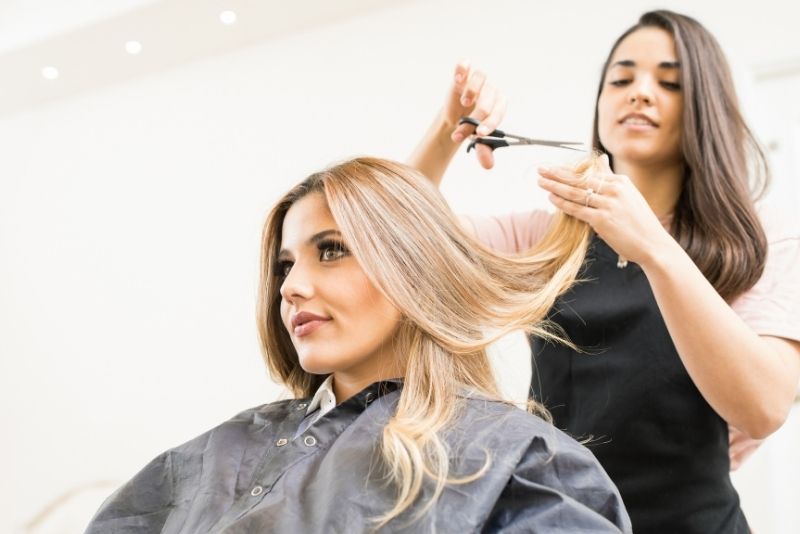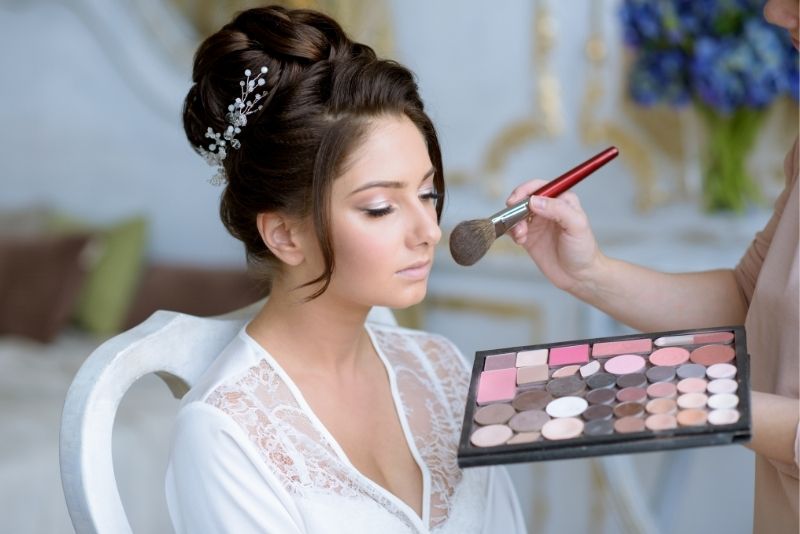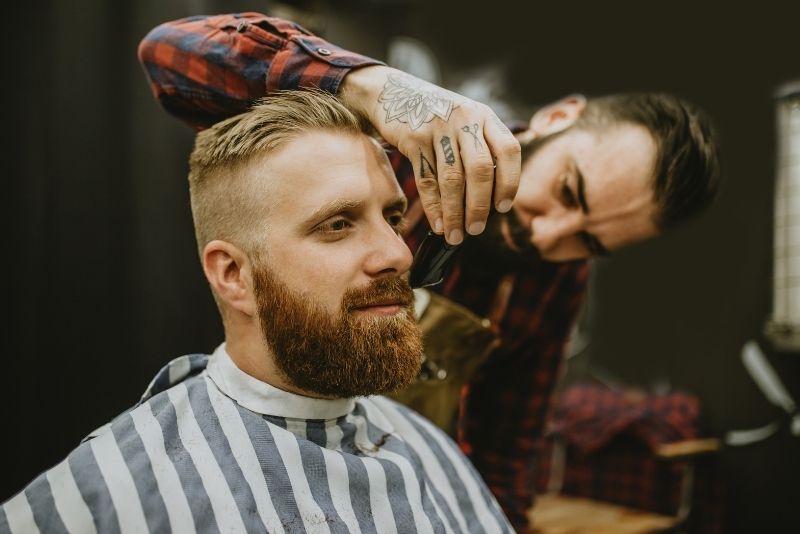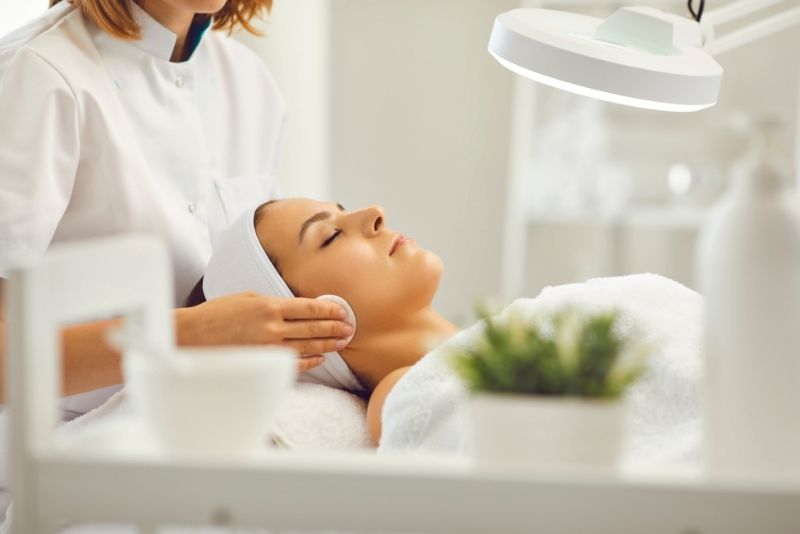Do I need beauty business insurance?

You’ve qualified, researched the market, and come up with a great beauty business idea. Now you’re thinking of starting your beauty business, whether nails, lashes, massage, hair, makeup or otherwise. But where do you start when it comes to beauty insurance?
We guide you through some of the basics to help you get started.
Where do I start with hair or beauty insurance?
Beauty is an increasingly competitive marketplace. It’s important to have your certification and insurance information available for your clients to review prior to booking appointments.
Listing your credentials on your website or social media channels is also important. It reassures your clients that you are a true professional and being fully insured illustrates that you have their best interests at heart from the outset.
You’ll also need to know what equipment you have (and create an inventory for insurance purposes), whether you store your tools-of-the-trade in your car, plan to be mobile, work from a salon or even work from home.
You’ll need to decide whether you are classed as self-employed or a sole-trader, or are intending to, or have formed, a limited company.
The difference in being self-employed and a limited company could impact on your insurance premiums. This is because you will be classed as an employee of your company and will have the ability to make claims against it. In this instance, you will need Employee’s Liability insurance, which is required by law in the UK.
Do I need Public Liability insurance for my beauty business?
While Public Liability is not a legal requirement, it is highly advisable, particularly in the beauty industry.
Compensation claims can creep into the tens, sometimes hundreds of thousands of pounds! Would you be able to defend a claim, and pay the compensation yourself? Consider these scenarios:
A client has an allergic reaction to one of your productsYou spill bleach on a client’s item of clothing, or their carpet at home if you are mobileA client trips over a cable or slips in a puddle of waterYou accidentally nick your client with scissors or a blade causing an injury
What insurance do I need as a self-employed lash technician?
We would advise Public Liability insurance as an essential part of your toolkit. When you are working with glues and sharp pointed tweezers it can increase the risk of injuries, or even allergies, to your client.
Treatment Risk insurance is an enhanced aspect of Public Liability insurance and covers you if one of your treatments injures a client.
What insurance do I need to start a microblading business?
Brows are a big trend and booming business. However, it’s important to know that any type of permanent makeup requires specialist cover, in addition to ‘non-invasive’ beauty treatments you may also offer as part of your business, such as facials or lash extensions.
Does Beauty insurance cover aesthetics, such as Botox™ and fillers?
More invasive cosmetic treatments, such as Botox and fillers, will require Medical Malpractice cover. This is essential cover to protect you in the event of a claim from a client, should the worst happen.
If you include these procedures as part of your service, we can help advise you on the best insurance package for your beauty business.
Will I need separate insurance for wedding beauty services?
It can be a wonderful experience to be part of someone’s special day, and a great way to build up some images for your portfolio. However, as a beauty business owner, you will also know that it can come with a range of additional risks.

While we all hope that accidents never happen at this type of event, it can reassure your (already nervous) client to know that you are fully insured in the event of any damage or even injury to your client, their family, or friends on their big day.
This could include any damage to your client’s wedding dress, which could be an expensive claim to pay for from your own pocket if you don’t have the correct cover.
It is also important to ensure that if you are travelling to the wedding location with your tools, you are confident that they are fully covered if some, or all of them, are stolen from your vehicle while you are enjoying the reception.
I sell hair or beauty products online, what cover do I need?
The ecommerce hair and beauty market is booming, and highly competitive, with many small businesses starting their own labels, whether focusing on organic facemasks and haircare, or a range of beauty products that represent your interests or culture. It’s also a great way to compliment your salon or mobile beauty business, but do you need separate insurance to sell online?
If you sell your products directly, via your own website, consider cyber cover. This covers you if your site is hacked, and your client’s personal details are stolen.
Even though you may work from home selling your products, you will still need to insure your stock. Consider Product insurance, should one of your products accidentally harm a customer. And Business Interruption insurance, in the event of a fire, flood or even explosion. It could be a hugely costly exercise, in terms of brand reputation and financial loss, to go about replacing all your stock yourself.
Whether you store your products at home, in a salon or third-party premises, we can find the right policy to suit your needs.
What insurance do I need as a beauty business employer?
In the UK, it is mandatory to have Employers Liability insurance when you become a limited company and employ staff. What many may not realise, as we mentioned earlier, is that you will automatically become an employee of your own company once you switch from sole trader to limited company. It’s important to talk to your broker if this is the case.

Employers Liability covers you in the event of a claim brought against you by your employee(s), which could be expensive to defend, let alone compensate.
One example could be that a member of your team falls and injures themselves under your direction and control, leaving them injured and unable to work, or pursues you for claims for unfair dismissal, or similar.
You would also need to insure your employees against client complaints.
Should one of your employees injure a client by nicking them with a tool, or mixing the wrong chemicals, or the client has a reaction, they would have the right to pursue a claim against you. Should the worst happen, it’s reassuring to know that any mistakes can be claimed on your Employers Liability insurance and will not have to come out of your own pocket.
It is worth noting that even if you use subcontractors, part-timers or unpaid trainees, Employers Liability insurance is required.
Do I need beauty insurance cover if I rent a chair or space at a salon?
You will need relevant cover wherever you work, although you may not need to cover your equipment.
Choosing your Beauty Insurance excess
While it’s important to keep your Beauty insurance premiums affordable, it’s also important to ensure they will cover you in the event of a claim.

Getting the right level of cover is essential, and brokers like A-Plan will ensure that you only pay for the cover you need.
When you first start out as a beauty professional, it may be pragmatic to consider a lower excess to help you manage your cashflow.
As you build up your capital over time, you may wish to consider opting for a higher excess. The most important factor is that you can afford to pay it in the event of a claim, without causing hardship, and without reducing your level of cover to cut costs.
Beauty insurance for your business
It is important to work with an experienced broker to choose the right cover for you and your business:
Public Liability insurance – to protect you against claims made by clients, or the public.Commercial Property Owners’ insurance – to cover you for damage to the premises that you use to run your business.Contents and stock – this policy can cover you for a specific amount in the event of your stock or business equipment getting damaged, preventing the need for you to repurchase the damaged items.Equipment cover – to ensure your specialist hair and beauty equipment is fully covered in the event of an insurable claim.Product Liability – to ensure you are not held liable should a client experience a bad reaction to a product.Treatment Risk Insurance – provides protection against claims by third parties alleging injury from treatments they have received.Business Interruption – this will cover you for an interruption to your beauty business caused by a number of insured perils, to include flood, fire, or explosion.Employers’ Liability – is required by law in the UK if you have employees. You will need your ERN reference when you purchase Employers Liability insurance.Cyber insurance – if you run an ecommerce site or an online booking system, consider cyber insurance to protect you and your business in the event you are hacked, and data is stolen.Personal Accident and Sickness cover – if you are self-employed and find that you are unable to work due to your health, this can cover you for up to 65% of your monthly income.
Just like the range of services or treatments you offer, your beauty business insurance policy will be based on individual requirements.
The best way to decide on what you need to include, or even whether your current policy covers you effectively, is to contact our beauty insurance experts directly on 01206 481280.



